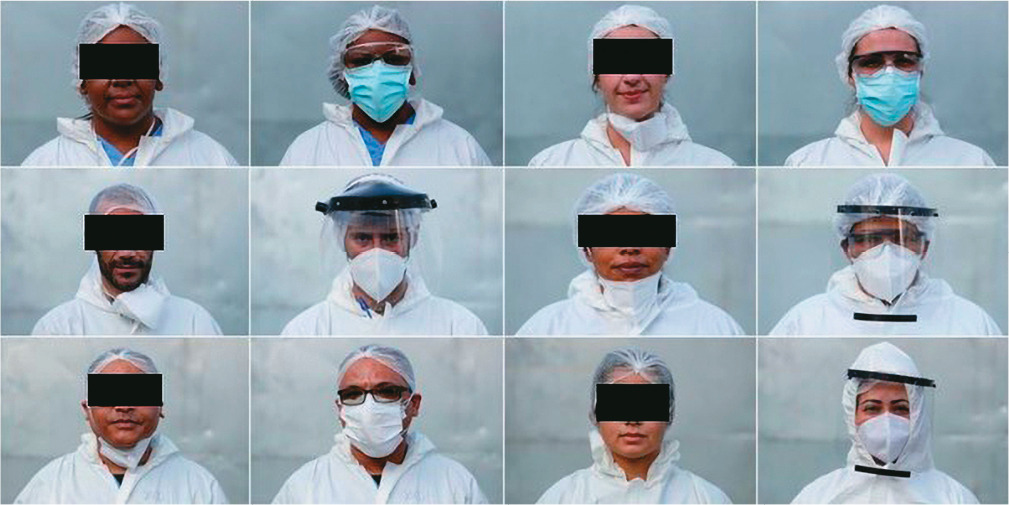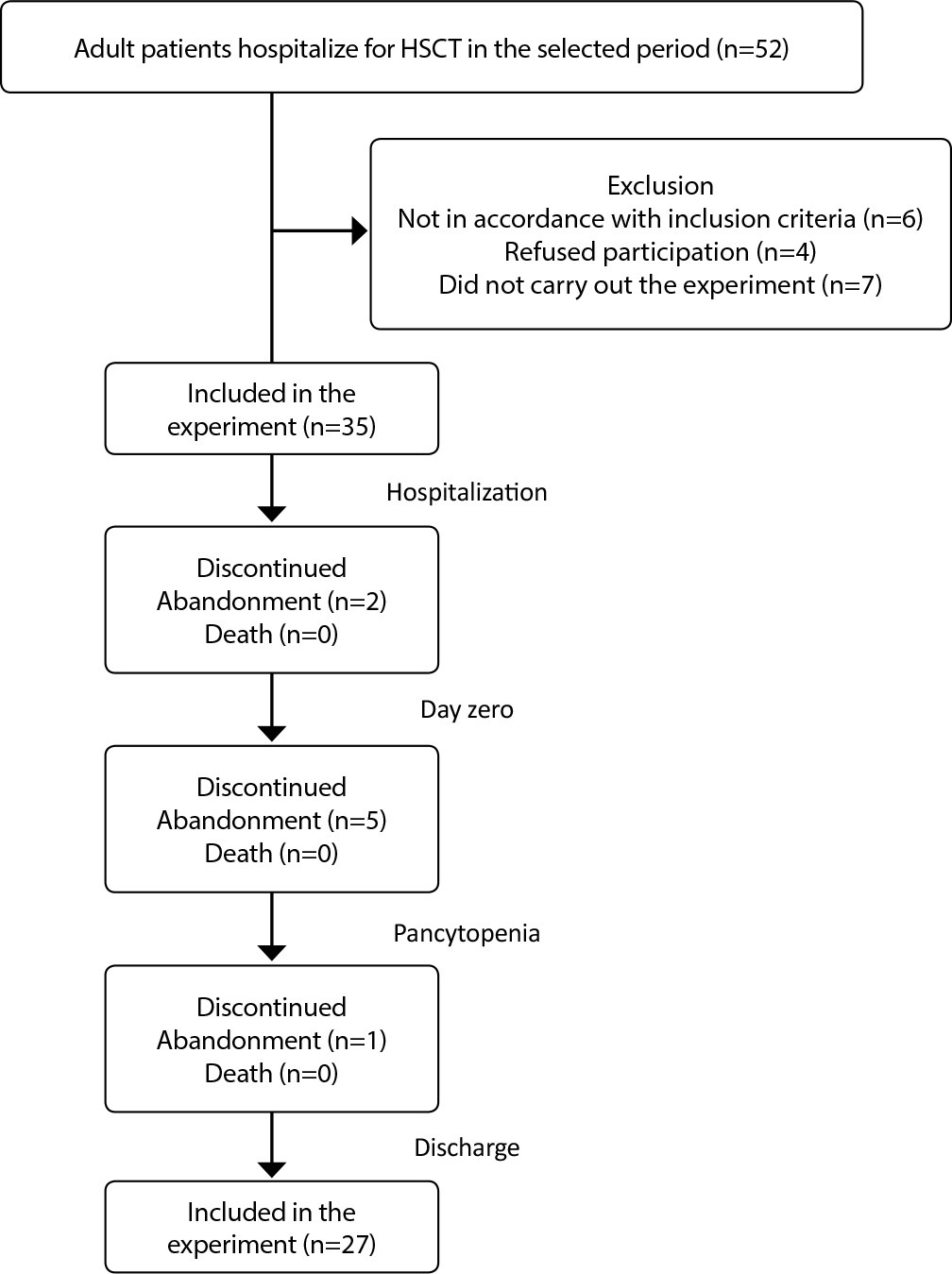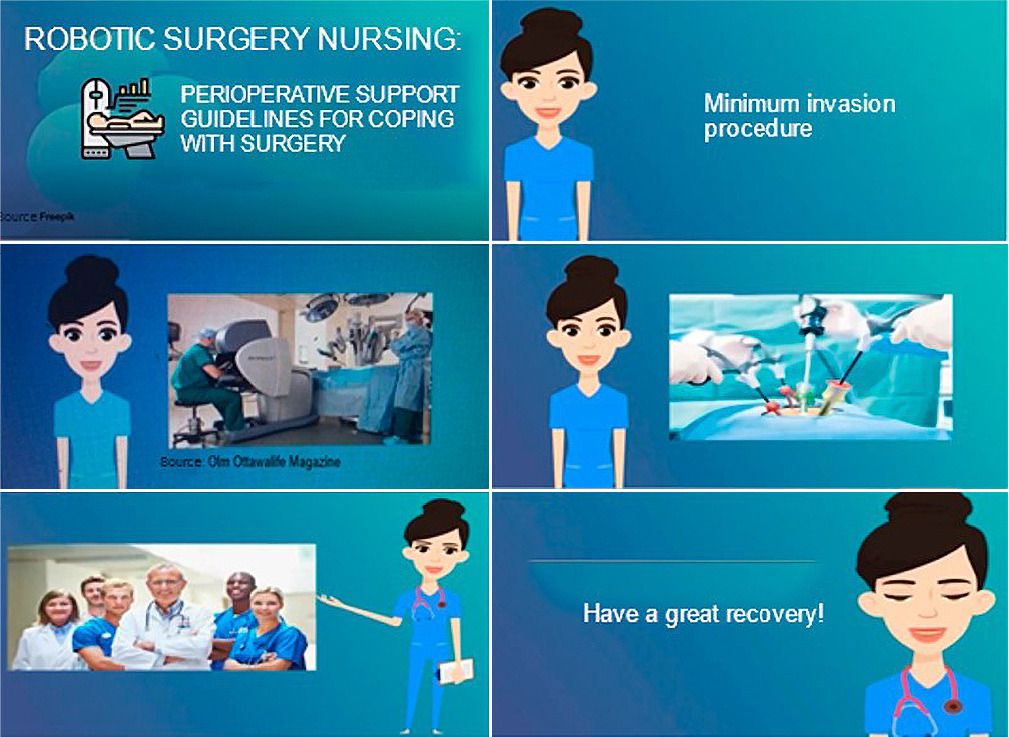-
REVIEW10-06-2023
Nursing theories in the care of stroke patients: a scoping review
Revista Brasileira de Enfermagem. 2023;76(5):e20220791
Abstract
REVIEWNursing theories in the care of stroke patients: a scoping review
Revista Brasileira de Enfermagem. 2023;76(5):e20220791
DOI 10.1590/0034-7167-2022-0791
Views0See moreABSTRACT
Objectives:
to map and synthesize nursing theories and conceptual frameworks that have been applied in the practice of nursing care for stroke patients in hospital settings.
Methods:
a scoping review was conducted in October 2022 using the MEDLINE (accessed via PubMed), CINAHL, Scielo, and Web of Science databases, following The Joanna Briggs Institute guidelines.
Results:
nine studies incorporated six nursing theories and three conceptual frameworks, which were employed to enhance stroke patient care. The objective of these theories and conceptual frameworks was to facilitate the identification of the patient’s psychobiological, psychosocial, and psychospiritual needs, elucidate the nurse’s role and expand their perspective on rehabilitation, and acknowledge the survivor’s process of transition.
Final Considerations:
this mapping exercise identified major nursing theories, middle-range theories, and conceptual frameworks applied to the care of stroke patients.

-
ORIGINAL ARTICLE10-06-2023
Learning strategies of undergraduate nursing students during the COVID-19 pandemic
Revista Brasileira de Enfermagem. 2023;76(5):e20220764
Abstract
ORIGINAL ARTICLELearning strategies of undergraduate nursing students during the COVID-19 pandemic
Revista Brasileira de Enfermagem. 2023;76(5):e20220764
DOI 10.1590/0034-7167-2022-0764
Views0See moreABSTRACT
Objectives:
to analyze the learning strategies used by nursing students from a public university, in remote teaching, during the COVID-19 pandemic.
Methods:
a cross-sectional study developed with nursing students who attended remote teaching classes. The sample was obtained by convenience and data were collected online, with 112 participants. Student and Mann-Whitney tests were performed for data analysis.
Results:
the most frequently used learning strategies were self-regulatory and cognitive. There was moderate use of interpersonal help-seeking and emotional control strategies. Male students, with a private study environment and good internet connection, used emotional control strategies more frequently.
Conclusions:
self-regulatory and cognitive learning strategies, appropriate for higher education, were frequently used by nursing students, which is an important tool for adapting these students to the university context.
-
Advanced Practice Nursing: “Training” Pillar in Supporting the Proposal in Brazil
Revista Brasileira de Enfermagem. 2023;76(5):e20230118
Abstract
Advanced Practice Nursing: “Training” Pillar in Supporting the Proposal in Brazil
Revista Brasileira de Enfermagem. 2023;76(5):e20230118
DOI 10.1590/0034-7167-2023-0118
Views0ABSTRACT
Objectives:
to present the pillars that support what has been called Advanced Practice Nursing and discuss the necessary training for its implementation.
Methods:
elements contained in assessment documents for graduate programs proposals, reports of presentations by international professors in countries and selected scientific publications were gathered to compose the argument.
Results:
practice/competency (adds broad and in-depth knowledge about health processes and scientific evidence, clinical reasoning and clinical skills for therapeutic indications); 3) professional regulation (corresponding legislation and monitoring); and 4) funding (broad training and professional practice policy).
Final Considerations:
the agenda for implementing Advanced Practice Nursing in Brazil involves joining efforts to identify stakeholders for a work to legitimize their importance in the country’s health and education overview.
Keywords:Advanced Practice NursingEducationGraduateHealth Postgraduate ProgramsNursingNursing EducationPublic PolicySee more
-
EDITORIAL10-06-2023
Translational Health Research: where are we going?
Revista Brasileira de Enfermagem. 2023;76(5):e760501
Abstract
EDITORIALTranslational Health Research: where are we going?
Revista Brasileira de Enfermagem. 2023;76(5):e760501
DOI 10.1590/0034-7167.2023760501
Views0The contributions of scientific research are undeniable for the advancement of science and for society. Therefore, more and more reflections on the impacts and applicability of studies have permeated the center of discussions at a global level, especially considering the growing increase in knowledge production. In this scenario, research translation (RT) has a notable importance […]See more -
ORIGINAL ARTICLE10-06-2023
Nursing, history, and orthopedics in manuals (1875-1928)
Revista Brasileira de Enfermagem. 2023;76(5):e20220567
Abstract
ORIGINAL ARTICLENursing, history, and orthopedics in manuals (1875-1928)
Revista Brasileira de Enfermagem. 2023;76(5):e20220567
DOI 10.1590/0034-7167-2022-0567
Views0See moreABSTRACT
Objectives:
to discuss the content of manuals, with emphasis on orthopedics, in support of the development of nursing care culture.
Methods:
cultural-historical method articulated with document analysis technique. The sources were nursing manuals – Portuguese, French, English, and Spanish – from 1875 to 1928.
Results:
this study pointed to 12 works – 6 authored by physicians, 2 by nurses, 3 institutional, and 1 by a Sister of Charity – that presented, in a transversal way, the professionalization process initiated in Europe. The manuals addressed first aid care and immobilization methods, from the simplest, such as improvised splints, to the application of plaster casts.
Conclusions:
the nurses’ work, even in a limited capacity, showed that they were able to observe warning signs so that doctors could act, with some exceptions.

-
ORIGINAL ARTICLE10-06-2023
Evidências do cuidado centrado no paciente no contexto da prática profissional de saúde brasileira
Revista Brasileira de Enfermagem. 2023;76(5):e20220448
Abstract
ORIGINAL ARTICLEEvidências do cuidado centrado no paciente no contexto da prática profissional de saúde brasileira
Revista Brasileira de Enfermagem. 2023;76(5):e20220448
DOI 10.1590/0034-7167-2022-0448
Views0RESUMEN
Objetivos:
analizar las actitudes centradas en el paciente en el cuidado y compartir prácticas de profesionales de enfermería, logopedia, odontología y medicina.
Métodos:
se utilizó una investigación transversal con 411 profesionales, y como medida de resultado se aplicó el instrumento Patient-Practitioner Orientation Scale.
Resultados:
los médicos presentaron puntuaciones medias más altas, lo que refleja una orientación centrada en el paciente, control compartido y enfoque en la persona, con diferencia estadística para todos los dominios (p<0,02). Los odontólogos fueron los profesionales que presentaron puntajes más bajos, especialmente en el dominio compartir, con diferencia estadística en relación a los enfermeros, logopedas y médicos (p<0,05).
Conclusiones:
finalmente, las actitudes de los profesionales de las áreas de salud estudiadas indicaron preferencia autorreferida por la centralidad en los pacientes. En este contexto, el cuidado centrado en el paciente puede ser un recurso importante en el cuidado de la salud cuando se apuesta por la superación del objeto hombre.
Keywords:Assistência Centrada no PacienteCuidado Centrado no PacientePessoal de SaúdePrática ProfissionalProfissional de SaúdeSee more -
ORIGINAL ARTICLE10-06-2023
Perception of graduates about the education of Nursing Technicians
Revista Brasileira de Enfermagem. 2023;76(5):e20220325
Abstract
ORIGINAL ARTICLEPerception of graduates about the education of Nursing Technicians
Revista Brasileira de Enfermagem. 2023;76(5):e20220325
DOI 10.1590/0034-7167-2022-0325
Views0ABSTRACT
Objectives:
to interpret the perception of graduates from the nursing technician program on the learning process developed during their education.
Methods:
a qualitative study was conducted from March to September 2021, based on interviews with 20 graduates from a nursing technician program at a school in the Midwest of São Paulo, using thematic analysis and the NVivo tool.
Results:
the following themes were identified: traditional teaching methods, active learning strategies, valuing proactivity and experiences in professional practice.
Final Considerations:
according to the graduates, the teaching process is essentially based on traditional methods, although there are initiatives to implement active strategies and recognition of the importance of advancing student proactivity and practical experience.
Keywords:AssociateEducationEducation, NursingHealth Human Resource TrainingLearningProfessional TrainingSee more
-
EDITORIAL10-06-2023
Pesquisa Translacional em Saúde: para onde vamos?
Revista Brasileira de Enfermagem. 2023;76(5):e760501
Abstract
EDITORIALPesquisa Translacional em Saúde: para onde vamos?
Revista Brasileira de Enfermagem. 2023;76(5):e760501
DOI 10.1590/0034-7167.2023760501pt
Views0Os contributos das pesquisas científicas são incontestáveis para o avanço da ciência e para a sociedade. Por isso, cada vez mais reflexões acerca dos impactos e da aplicabilidade dos estudos têm permeado o centro das discussões em nível global, sobretudo diante do aumento crescente da produção de conhecimentos. Nesse cenário, a translação da pesquisa (TP) […]See more
-
ORIGINAL ARTICLE10-01-2022
Self-care of elderly people with diabetes mellitus and the nurse-patient interpersonal relationship
Revista Brasileira de Enfermagem. 2022;75(1):e20201257
Abstract
ORIGINAL ARTICLESelf-care of elderly people with diabetes mellitus and the nurse-patient interpersonal relationship
Revista Brasileira de Enfermagem. 2022;75(1):e20201257
DOI 10.1590/0034-7167-2020-1257
Views1INTRODUCTIONChronic non-communicable diseases are the main causes of death and health problems in the world, causing about 41 million deaths each year, which corresponds to approximately 71% of all deaths. Among these diseases, diabetes mellitus has stood out due to the increase in its incidence and prevalence().Estimates indicate that 463 million people live with diabetes […]See more -
ORIGINAL ARTICLE03-27-2023
Adaptation and validation of an adult patient classification instrument with emphasis on the family dimension
Revista Brasileira de Enfermagem. 2023;76(2):e20220530
Abstract
ORIGINAL ARTICLEAdaptation and validation of an adult patient classification instrument with emphasis on the family dimension
Revista Brasileira de Enfermagem. 2023;76(2):e20220530
DOI 10.1590/0034-7167-2022-0530
Views1ABSTRACT
Objectives:
to adapt and validate an instrument for classifying adult patients that emphasizes the family support network in the demand for nursing care.
Methods:
methodological study, carried out in three phases: adaptation of an instrument considering the reality of adult patients; content validation with seven experts and assessment of measurement properties (construct validity and internal consistency) with 781 hospitalized patients.
Results:
in content validation, the indicators reached the values established for the Content Validity Index (0.85-1.00). In the confirmatory factor analysis, the 11 indicators were distributed in three domains and presented average variance extracted and factor loading greater than 0.5. Composite reliability was greater than 0.7.
Conclusions:
the present study adapted and made available, with evidence of validity and reliability, an instrument for classifying adult patients that considers the family support network in the demand for nursing care.
Keywords:Factor AnalysisFamilyHospital Organization and AdministrationPatient-Centered CareValidation StudiesSee more
-
ORIGINAL ARTICLE10-17-2022
Ethics, COVID-19 and nursing vulnerability: analysis of photographs released by the media
Revista Brasileira de Enfermagem. 2022;75:e20210960
Abstract
ORIGINAL ARTICLEEthics, COVID-19 and nursing vulnerability: analysis of photographs released by the media
Revista Brasileira de Enfermagem. 2022;75:e20210960
DOI 10.1590/0034-7167-2021-0960
Views1See moreABSTRACT
Objectives:
to analyze nursing vulnerability through photos released by the media amidst the COVID-19 pandemic.
Methods:
a documentary study, with a qualitative approach. The object of analysis were photographic images selected between January 2020 and March 2021, published by the main news portals in countries such as Brazil, the United States, France, Spain, England and Germany. Thematic categorical analysis was the method of analysis used.
Results:
we found 74 photographs that portrayed nursing professionals in different work situations. It was possible to identify stigma and social devaluation about this class’s representation and professional attribution. Moreover, we found an underrepresentation of black professionals in Brazilian portals and the man as the prominent figure in the spaces of claims.
Final Considerations:
the photographs represented an important tool for the social analysis of nursing vulnerability, favoring the unveiling of situations that may go unnoticed by nursing and society.

-
ORIGINAL ARTICLE07-29-2022
Effects of guided imagery relaxation in hematopoietic stem-cell transplantation patients: a quasi-experimental study
Revista Brasileira de Enfermagem. 2022;75(5):e20220114
Abstract
ORIGINAL ARTICLEEffects of guided imagery relaxation in hematopoietic stem-cell transplantation patients: a quasi-experimental study
Revista Brasileira de Enfermagem. 2022;75(5):e20220114
DOI 10.1590/0034-7167-2022-0114
Views1ABSTRACT
Objective:
To analyze the effects of the technique of virtual reality guided imagery in the vital signs of hematopoietic stem-cell transplantation patients.
Method:
Quasi-experimental study with 35 participants who received an intervention using virtual reality guided imagery with progressive muscle relaxation, applied three times a week for four weeks in a referral hospital for transplants in the south of Brazil. Data collected included: temperature, arterial pressure, respiratory rate, heart rate, pain, and oxygen saturation, before and after each intervention. The comparisons were analyzed using Wilcoxon’s test.
Results:
There was a clinical significance between the mean measurements before and after for respiratory rate (p=0.00) in all stages, and for the variables Heart rate, Temperature, and Oxygen saturation from the 1st to the 12th measurements (p=0.05).
Conclusion:
The intervention was low cost, easy to apply, and showed positive effects, presenting itself as an option for patient-focused care.
Keywords:Bone Marrow TransplantationHematopoietic Stem Cell TransplantationImageryPsychotherapyRelaxation TherapyVital SignsSee more
-
ORIGINAL ARTICLE08-15-2022
Construction and validation of an educational video for patients in the perioperative period of robotic surgery
Revista Brasileira de Enfermagem. 2022;75(5):e20210952
Abstract
ORIGINAL ARTICLEConstruction and validation of an educational video for patients in the perioperative period of robotic surgery
Revista Brasileira de Enfermagem. 2022;75(5):e20210952
DOI 10.1590/0034-7167-2021-0952
Views1See moreABSTRACT
Objectives:
to build and validate educational technology, of the video type, aimed at teaching about the perioperative period of robotic surgery.
Methods:
methodological development study, following the integrative review phases: pre-production, production, post-production, and validation. The video was evaluated for content and appearance by 14 judges. Content validity (CVI) and appearance (AVI) and agreement (CI) indices were calculated, and the exact binomial test was applied, considering p>0.05 and a proportion of 0.80 of agreement.
Results:
the video included 13 themes, with a duration of seven minutes and 33 seconds. The items of the three dimensions evaluated presented excellent CVI, ranging between 0.86 and 1.00 (p>0.05), with a total CVI of 0.95, VAT of 0.94 and CI equal to 61.5%.
Conclusions:
the video included 13 themes, with a duration of seven minutes and 33 seconds. The items of the three dimensions evaluated presented excellent CVI, ranging between 0.86 and 1.00 (p>0.05), with a total CVI of 0.95, VAT of 0.94 and CI equal to 61.5%.

-
ORIGINAL ARTICLE09-24-2022
Nurses’ performance in palliative care: spiritual care in the light of Theory of Human Caring
Revista Brasileira de Enfermagem. 2022;75(1):e20210029
Abstract
ORIGINAL ARTICLENurses’ performance in palliative care: spiritual care in the light of Theory of Human Caring
Revista Brasileira de Enfermagem. 2022;75(1):e20210029
DOI 10.1590/0034-7167-2021-0029
Views1See moreABSTRACT
Objectives:
to analyze nurses’ role in assisting patients in palliative care, with emphasis on the spiritual dimension, in the light of Theory of Human Caring.
Methods:
this is an exploratory, qualitative study, carried out in a hospital in João Pessoa, Paraíba, between August and December 2019, with 10 nurses. For data collection, semi-structured interviews were used. For analysis, we opted for content analysis.
Results:
the spiritual dimension of care is contemplated by several religious and spiritual practices. These are respected and encouraged by nurses, although there is difficulty in providing care for the spiritual dimension.
Final Considerations:
nurses have attitudes consistent with Jean Watson’s Theory and apply the Caritas Process elements during assistance to patients’ spiritual dimension in palliative care.
-
Evolution of nursing teaching in the use of education technology: a scoping review
Revista Brasileira de Enfermagem. 2021;74:e20200422
Abstract
Evolution of nursing teaching in the use of education technology: a scoping review
Revista Brasileira de Enfermagem. 2021;74:e20200422
DOI 10.1590/0034-7167-2020-0422
Views1See moreABSTRACT
Objective:
To identify and map the technological tools of information and communication to support the teaching learning process in Nursing teaching courses.
Methods:
This is a scoping review whose search was carried out in seven databases and in grey literature. After an initial analysis of the selection, 88 texts were read integrally, and 29 made up the final sample.
Results:
Virtual learning environment and object, simulation, hypermedia, and software or cellphone applications were the tools the nursing professors used the most. Studies highlight that the application of technology was important in the teaching-learning process, since it encouraged teaching based on safe care, motivating and developing abilities/competences, supported on significant, effective, flexible, and autonomous learning.
Conclusion:
The contribution of the technology for nursing formation stands out, but it should be highlighted that its employment must be critical, reflective, based on pedagogical theories and developed by trained professors.

-
Pregnant women’s contribution in the construction and evaluation of an educational technology: the “Comics for Pregnant Women”
Revista Brasileira de Enfermagem. 2021;74:e20201243
Abstract
Pregnant women’s contribution in the construction and evaluation of an educational technology: the “Comics for Pregnant Women”
Revista Brasileira de Enfermagem. 2021;74:e20201243
DOI 10.1590/0034-7167-2020-1243
Views1See moreABSTRACT
Objectives:
to describe the contribution of pregnant women to the construction and evaluation of educational technology.
Methods:
a participatory study developed in three stages, which occurred between March 2018 and June 2019 for identifying the content, construction, and evaluation of the comic. Non-directive interviews were conducted in educational groups with 34 pregnant women. After the comic was built by a team, including a designer, an instrument was applied to 41 pregnant women to evaluate the items Objectives, Organization, Writing style, Appearance, and Motivation.
Results:
the comic contains 40 pages of contents, illustrations, and quizzes (word search, cross-puzzle, seven mistakes, etc). The pregnant women evaluated it as easy to understand, self-explanatory, aesthetically attractive, and capable of motivating good care practices during pregnancy, obtaining a minimum agreement of 92.1%.
Final Considerations:
the innovation of the educational technology consisted of incorporating the voices of pregnant women in prenatal care, with the potential to stimulate reflections and the learning process of this target audience.

Search
Search in:
Nuvem de Tags
Aged (144) Atenção Primária à Saúde (239) COVID-19 (104) Cuidados de Enfermagem (269) Educação em Enfermagem (151) Educação em Saúde (139) Enfermagem (930) Estudos de Validação (131) Health Education (144) Idoso (208) Mental Health (149) Nursing (987) Nursing Care (306) Patient Safety (151) Primary Health Care (284) Qualidade de Vida (104) Quality of Life (106) Saúde Mental (145) Segurança do Paciente (150) Validation Studies (108)



